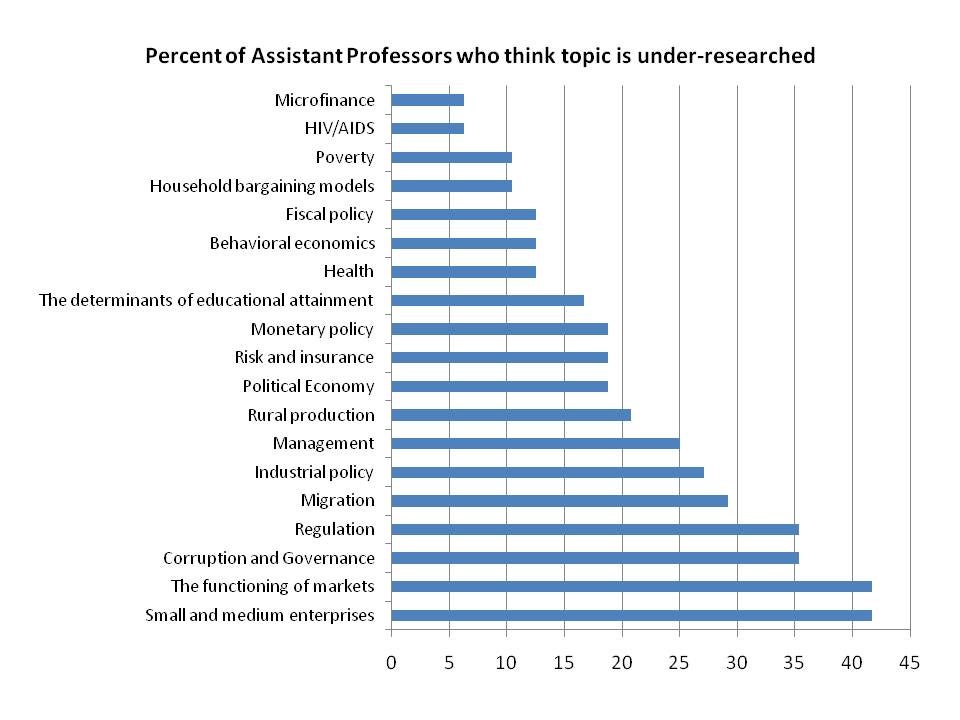Berk (who is on vacation this week) and I have recently been surveying assistant professors, graduate students, and World Bank economists to learn how they find out about new research and the role of blogs in this process. We’ll be sharing results once we have finished this, but to start with, I thought I’d share this chart below on what junior faculty who work on development think are the under-researched topics.
These responses come from approximately 50 assistant professors in the U.S. and at international universities who do development research. They were identified through a range of criteria, including presenting at the NEUDC development conference last year, and/or being a faculty member at a top university who publishes in development. One of the first people to answer the survey suggested that we attempt to take the “pulse” of the profession by getting their views on what topics they think are under-researched or that they would be particularly interested in seeing more research in. Here are the responses:

(you can download a bigger version of the chart here)
These responses fit my priors reasonably well (or maybe I’m just being self-serving given that I’m working on topics like SMEs, migration and management). But if you were to look at a standard graduate development economics course syllabus, it is typically heavy on health, education, risk and insurance, and household bargaining models, and very light on coverage of some of the topics identified as under-researched here. I think this ranking also fits reasonably well with where the existing evidence from impact evaluations has been (and thus the topic coverage in books like More than Good Intentions and Poor Economics).
What do you think? Are there any other big topics out there that people are simply just not looking at enough?


Join the Conversation